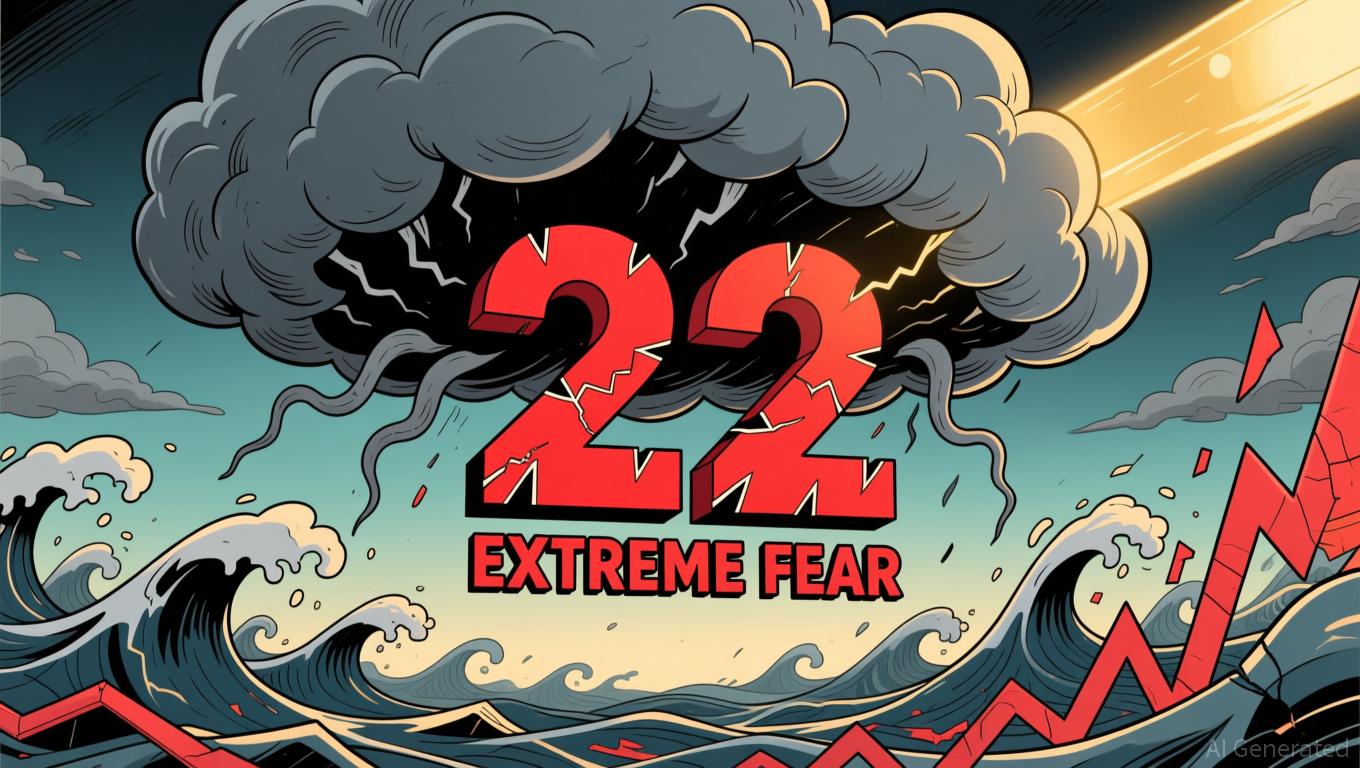Bitcoin News Update: Tether’s Twofold Function: Bringing Stability to Markets and Supporting Crypto Regulation
- Tether executed a $1B USDT transfer to Bitfinex amid Bitcoin's decline near $77,000-$81,900 support levels, signaling market liquidity management. - The transfer coincided with a Thai-US operation seizing $4B in illicit USDT, where Tether aided in tracking transactions and enabling 73 arrests. - Bitcoin's price consolidation at $81,900 long-term mean and ETF outflows ($2.96B in November) highlight fragile investor sentiment amid regulatory shifts. - Tether's 87,556 BTC ($7.62B) reserves and enforcement c
Tether's recent $1 billion
The timing of Tether's transfer aligns with a joint international crackdown led by the Royal Thai Police and the U.S. Secret Service, which resulted in the confiscation of 12 million USDT (approximately $4 billion) from a major fraud syndicate. Tether contributed to the operation

The wider market environment is marked by ongoing withdrawals from Bitcoin ETFs, with BlackRock's iShares Bitcoin Trust (IBIT) experiencing a record $523 million in redemptions on November 19 alone. This pushed November's total ETF outflows to $2.96 billion,
Tether's recent moves illustrate its dual function as both a stablecoin provider and a key player in the digital asset landscape. By holding a large Bitcoin reserve and working with law enforcement, Tether strengthens its position in terms of liquidity and regulatory compliance. Nevertheless, the market's dependence on such actions raises concerns about overall stability as Bitcoin faces ongoing downward pressure.
Disclaimer: The content of this article solely reflects the author's opinion and does not represent the platform in any capacity. This article is not intended to serve as a reference for making investment decisions.
You may also like
Switzerland Postpones Crypto Tax Data Exchange to Meet Technological and International Requirements
- Switzerland delays crypto tax data sharing until 2027, aligning with global regulatory reevaluations amid evolving tech and market dynamics. - SGS acquires Australia's Information Quality to boost digital revenue, reflecting Swiss firms' expansion into tech-driven compliance solutions. - Canada's Alberta oil sands policy shift highlights governments prioritizing economic growth over strict climate regulations, mirroring Switzerland's approach. - BridgeBio's precision medicine and Aires' EMF solutions dem

Switzerland's Focus on Privacy Conflicts with International Efforts for Crypto Taxation
- Switzerland delays crypto tax data sharing with international partners until 2027, contrasting with global regulatory efforts to close offshore loopholes. - The U.S. advances implementation of the OECD's CARF framework, aiming to automate reporting on foreign crypto accounts by 2029. - CARF requires foreign exchanges to report U.S. account details, mirroring traditional tax standards and targeting crypto tax evasion. - Switzerland's privacy-focused stance highlights tensions between financial confidentia

Zcash News Update: Reliance Shifts Entirely to Zcash, Citing Privacy and Regulatory Alignment
- Reliance Global Group, a Nasdaq-listed fintech firm, shifted its entire crypto portfolio to Zcash (ZEC), divesting Bitcoin , Ethereum , and other major coins. - The strategic pivot, announced November 25, prioritizes Zcash's privacy-focused zk-SNARKs technology for institutional compliance and selective data disclosure. - Zcash's 1,200% 90-day price surge and Grayscale's ETF filing highlight growing institutional interest in privacy-centric assets. - The move reflects broader crypto industry trends towar
Bitcoin News Update: Bitcoin Fear Index Drops to 22 While Investors Look for Signs of Market Rebound
- Bitcoin Fear & Greed Index rose to 22 from 20, indicating slight easing of extreme fear but persistent bearish sentiment. - Bitcoin stabilized near $87,000 after hitting $80,553, yet remains below key resistance levels amid $3.5B ETF outflows. - Structural factors like leverage and liquidations drive selloffs, with ETF redemptions correlating to 3.4% price drops per $1B outflow. - Analysts note oversold technical indicators and waning retail capitulation as potential inflection points for near-term rebou
